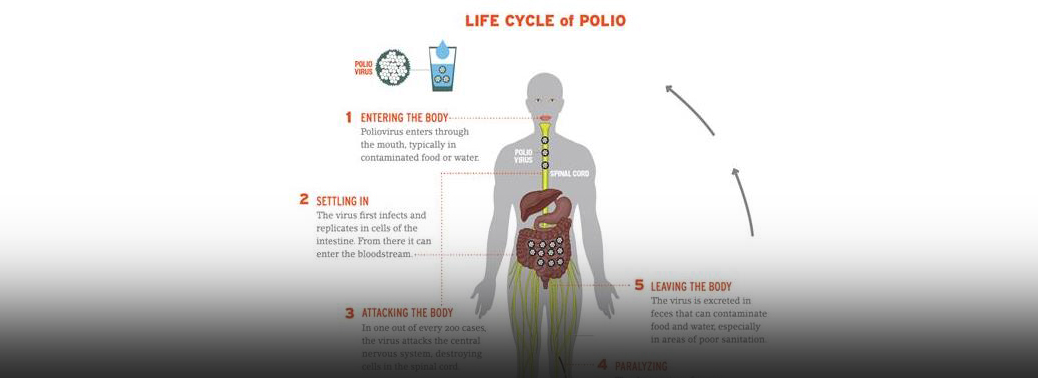NO SHORTAGE OF POLIO VACCINE
19, May 2019

Prelims level : Science and Tech
Mains level : GS-III Technology, Disaster Management, Environment (GS3L)
Why in News:
- No shortage of polio vaccine for routine immunisation says Health ministry.
Background:
- The issue came after reports of anticipated shortage following the detection of contamination, by the Central Drugs Laboratory (CDL) in Kasauli, in 16 batches of polio vaccine manufactured by Bharat Immunological and Biologicals Corporation Limited (Bibcol).
What is poliomyelitis/polio?
- Poliomyelitis, often called polio or infantile paralysis is an acute infectious disease caused by polio virus. The virus is a human enterovirus of the Picornaviridae
- There are three types of Polio Virus: 1,2,3-Single stranded RNA virus Natural or Wild Polio Virus (WPVS). It is transmitted from one person to another by oral contact with secretions or faecal material from an infected person. It attacks the central nervous system through the blood stream and damage the cells and paralyse the victim.
Types of Polio vaccines
- Two different kinds of vaccine are available: an inactivated (killed) polio vaccine (IPV) and a live attenuated oral polio vaccine (OPV).
Inactivated Polio vaccine (IPV):
- It was first introduced in 1995 by Dr. Jonas Salk
- It is produced from wild-type poliovirus strains of each serotype that have been inactivated (killed) with formalin.
- It is an injectionable vaccine and can be administered alone or in combination with other vaccines (e.g., diphtheria, tetanus, pertussis, hepatitis B, and haemophilus influenza).
Oral Polio vaccine (OPV):
- It was first introduced in 1961 by Dr. Albert Sabin
- consists of a mixture of the three live attenuated poliovirus serotypes (Sabin types 1, 2 and 3), selected for their lower neurovirulence and reduced transmissibility.
- Apart from trivalent OPV (tOPV), monovalent OPVs viz. against Type 1 (mOPV1) and against type-3 (mOPV3) have been licensed for use in some countries
- In 2009, 2 bivalents (type-1 and type-3) OPVs (bOPVs) were licensed.






